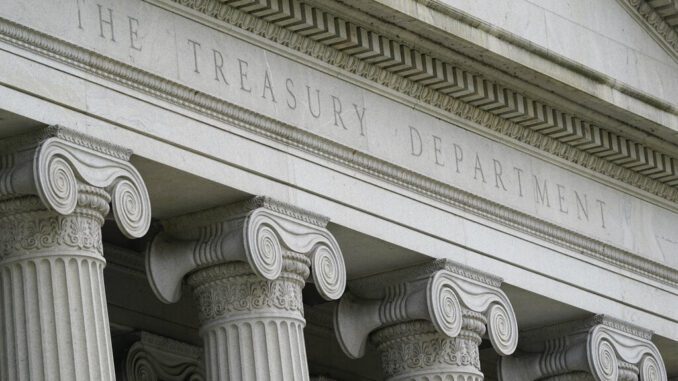
Most conservatives place the United States Constitution second only to the Bible in reverence and respect. And, that makes sense. It is the most successful acknowledgement of limited government and individual liberty yet devised. It is the foundation of the most prosperous nation on earth, a place where even those in “poverty” are envied by the poor elsewhere around the world.
So why do we now ignore those portions of the U.S. Constitution that brought us such prosperity? Why are we playing “fast and loose” with our Founders’ template success?
The little-discussed “Coinage Clause” to the U.S. Constitution is part of that template. It states that “The Congress shall have the power to… coin money [and] regulate the value thereof.” Moreover, “No state shall… coin money… [or] make any Thing but gold and silver coin a Tender in payment of debt…”
Even in the 18th Century, the Founders knew that money was the key to economic success. They knew that money not backed by gold, silver or something else of intrinsic value, was not capable of sustaining an economy. They understood that the collapse of Rome was hastened by the reduction of precious metal backing within its money supply. To them, the collapse of the Dutch “tulip economy” in 1637 was not ancient history. They knew that flowers as “money” had no enduring worth. Yet, today’s economists wrongly treat the Constitution’s economic principles as relics of the “Dark Ages,” mostly because they were conceived before “The year of Their Lord,” John Maynard Keynes.
Beginning in 1933 and ending in 1976, the dollar was denuded of its two-century relationship to gold and silver. Instead, it was backed by what economists called the “full faith and credit of the United States.” Modern “gurus” figured that this had some meaning. After all, the United States had the world’s largest Gross “National” Product (as it was called in those days).
Besides, 1976 was only a quarter century after World War II. As bad as things were for the United States militarily with its embarrassing loss in Viet Nam, the dollar was still the world’s reserve currency. Hence, backing the dollar with “full faith and credit,” rather than another thing of intrinsic value, seemed a worthwhile risk. In spite of the constitutional mandate that money be backed by something of independent worth, America’s leaders were willing to bet that the dollar could be both devalued and remain a strong medium of exchange. The key was that, in keeping with the spirit of the Constitution, the US government, albeit through the Federal Reserve Bank, fully controlled the “coinage” of the dollar and the dollar was the coin of the world.
But, today, as America’s dominance dissolves, so does the dollar. Its “backing” seems less valuable to a world increasingly dominated by China. Into that vacuum, “cryptocurrency” has risen. This “coinage” and value of this new “money” has fallen outside the control of the U.S. government or any government. That has created both a constitutional and economic crisis of legal tender truly backed by nothing.
In spite of its complex “block chain” technology, cryptocurrency is nothing new. In reality, it is the Dutch tulip of the 1600’s. It is a plate from the Franklin Mint, a baseball card or a Beanie Baby. It is intrinsically worthless but has properties which convince normally sane people that the “thing” has value and can be used as “money.”
In other words, we know that at least the Federalist Founders, such as Alexander Hamilton, devoted their lives to the sound control of well-backed currency. As such, they would have been concerned when America abandoned backing money with precious metal. They would have been appalled when cryptocurrency backed by nothing more than electronic impulses was tolerated as legal tender.
As the Federal Reserve greatly increases the money supply out of proportion to only modest increases in GDP and tax revenue, the worth of the American dollar will fall. Cryptocurrencies will rise. And they will all create a worthless “house of cards” ready to fall into an abyss which no amount of tax cuts, “stimuli” or “quantitative easing” will remedy.
In the 21st Century, the farther America strays from the Founders’ blueprint for a strong currency, the closer the nation will fall into this “economic black hole.” As such, Congress must not be ashamed to closely regulate cryptocurrency. And, the Federal Reserve must stop manufacturing worthless paper it calls “money.”
